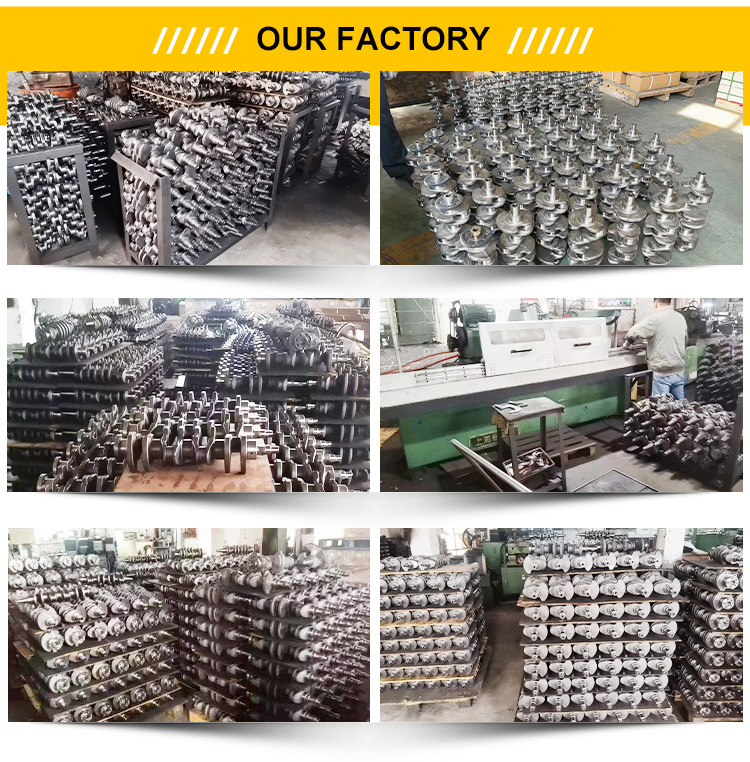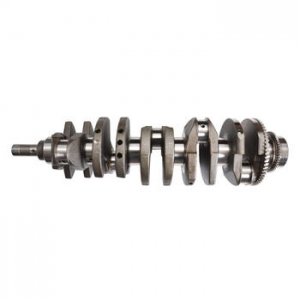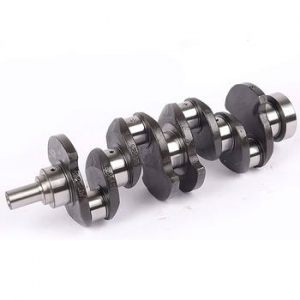Factors Affecting Crankshaft Lifespan
Several factors play a role in determining how long a crankshaft will last. Manufacturing quality is paramount. A well-made crankshaft, forged from high-quality steel, provides a strong foundation for a long lifespan. Conversely, a crankshaft made with inferior materials or flawed manufacturing processes is more susceptible to premature failure.Engine operating conditions also heavily influence crankshaft longevity. Consistent overheating, inadequate lubrication, and excessive stress from high RPM operation can all contribute to wear and tear. Think of it like any other moving part – subject it to enough stress, and it will eventually fail.
Driving habits further impact the lifespan of a crankshaft. Aggressive driving, frequent hard acceleration, and lugging the engine (running the engine at low RPM under heavy load) can place undue stress on the crankshaft.
Typical Crankshaft Lifespan
So, how long does a crankshaft last in real-world conditions? In a well-maintained engine, a crankshaft can often last the lifetime of the vehicle – hundreds of thousands of miles. However, neglecting regular maintenance can significantly shorten its lifespan. This is why understanding and adhering to recommended maintenance schedules is crucial.Signs of a Failing Crankshaft
Recognizing the signs of a failing crankshaft can help you prevent catastrophic engine damage. Low oil pressure, unusual engine knocking noises, and excessive engine vibration are all potential indicators of crankshaft problems. If you notice any of these symptoms, it's crucial to have your vehicle inspected by a qualified mechanic immediately.Crankshaft Maintenance: Extending the Lifespan
Proper maintenance is key to ensuring a long and healthy life for your crankshaft. Regular oil changes with the correct viscosity oil are essential for proper lubrication. Using high-quality oil filters helps prevent abrasive particles from damaging the crankshaft bearings. Also, addressing any oil leaks promptly is crucial to avoid oil starvation, a major cause of crankshaft failure.Crankshaft Failure: Causes and Consequences
Crankshaft failure can result from a variety of factors, including bearing failure, fatigue cracks, and even physical damage from debris entering the engine. The consequences can range from costly repairs to complete engine failure. In some cases, a damaged crankshaft can be repaired, but often, replacement is the only option. So, is it worth the risk of neglecting maintenance?The Importance of Regular Inspections
Regular engine inspections can help identify potential crankshaft problems before they escalate into major issues. A mechanic can check for signs of wear, such as bearing play and journal damage, during routine maintenance. This proactive approach can save you significant money and hassle in the long run. How often do you have your engine checked?Crankshaft Material and Manufacturing Process: Impact on Longevity
The material used in the manufacturing process and the process itself significantly impact crankshaft longevity. Forged crankshafts are generally stronger and more durable than cast crankshafts, offering increased resistance to fatigue and wear. This is particularly important in high-performance engines.Extending the Life of Your Crankshaft: Practical Tips
To maximize crankshaft lifespan, avoid harsh driving habits, maintain proper oil levels and quality, and address any engine issues promptly. Regular maintenance and proactive inspections are the best ways to ensure a long-lasting crankshaft and a healthy engine.In conclusion, the lifespan of a crankshaft, a critical component of your vehicle’s engine, depends on a multitude of factors, including manufacturing quality, engine operating conditions, driving habits, and regular maintenance. While a well-maintained crankshaft can last for hundreds of thousands of miles, neglecting its upkeep can lead to premature failure and costly repairs. By following the recommended maintenance schedule, being mindful of your driving habits, and addressing any engine issues promptly, you can significantly extend the life of your crankshaft and ensure the smooth operation of your vehicle for years to come. Now that you understand the factors influencing crankshaft lifespan, take proactive steps to ensure the health of your engine. Schedule an engine inspection today!




